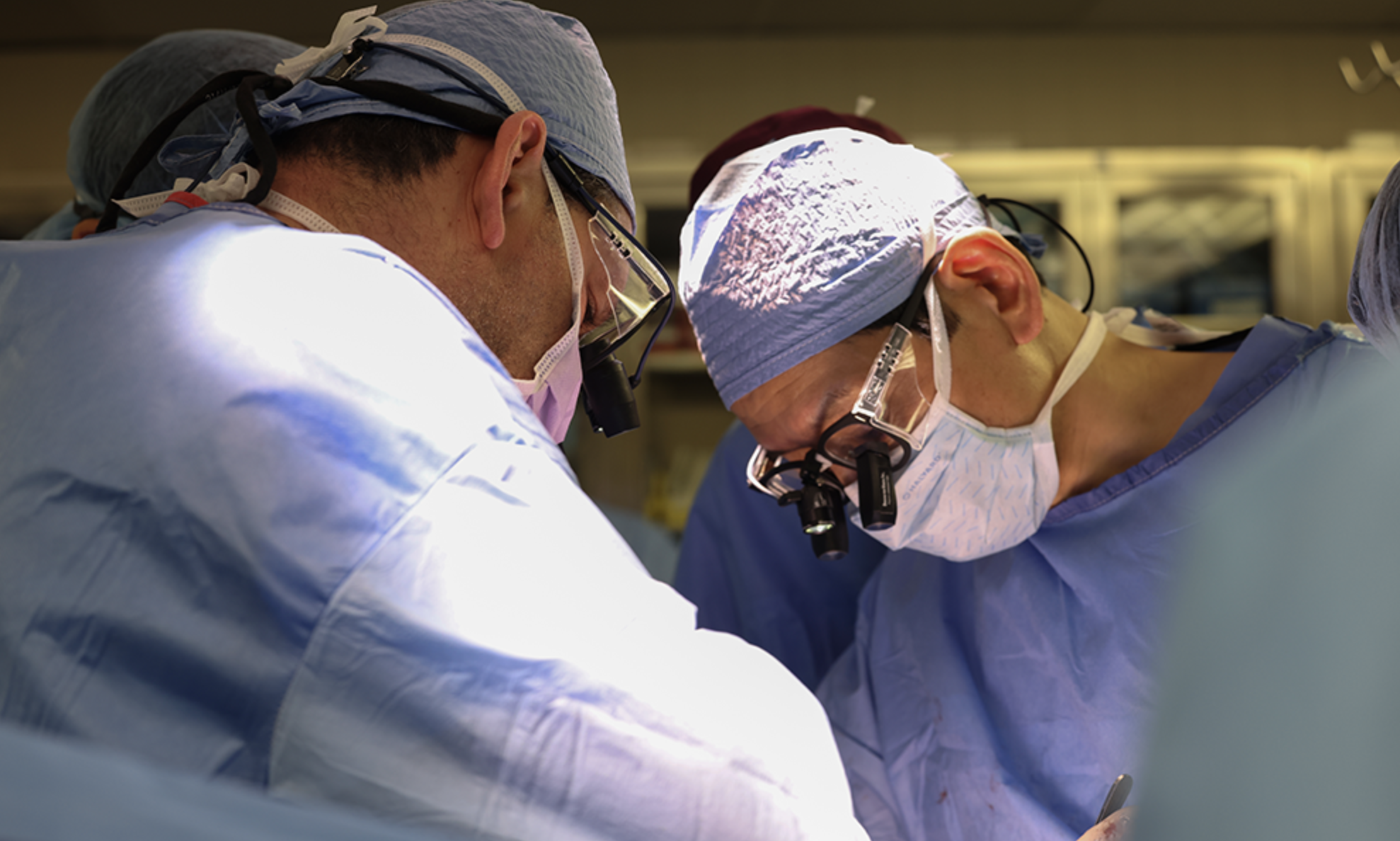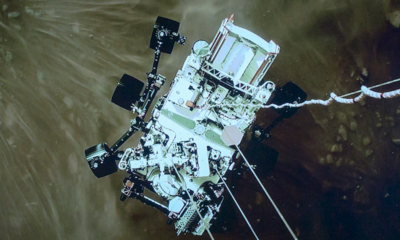HEALTH
Massachusetts Man Receives First Successful Pig Kidney Transplant
Published
3 months agoon

Massachusetts General Hospital
In a world first, a genetically modified pig kidney was successfully transplanted into a 62-year-old man living with end-stage kidney disease, Massachusetts General Hospital announced Thursday.
The four-hour surgery was performed on March 16 by surgeons from the Mass General Transplant Center, part of the Mass General Brigham health care system, which is an internationally recognized leader in transplantation. The worlds first successful human organ transplant, a kidney, was performed at Brigham and Womens Hospital in 1954, and Massachusetts General Hospital performed the nations first penile transplant in 2016.
“Mass General Brigham researchers and clinicians are constantly pushing the boundaries of science to transform medicine and solve significant health issues facing our patients in their daily lives,” Anne Klibanski, MD, President and CEO, Mass General Brigham, said in a statement. “Nearly seven decades after the first successful kidney transplant, our clinicians have once again demonstrated our commitment to provide innovative treatments and help ease the burden of disease for our patients and others around the world.”
The pig kidney provided by eGenesis of Cambridge, Mass., had 69 genomic edits, made using CRISPR-Cas9 technology, that removed harmful pig genes and added certain human genes. Scientists also inactivated porcine retroviruses in the pig donor to remove any risk of infection in humans.
“We are grateful for the courageous contribution of the patient and to the advancement of transplantation science,” said eGenesis CEO Mike Curtis. “We congratulate our collaborators at MGH on this historic milestone. We also recognize the work and dedication of the eGenesis team that made this achievement possible.”
The transplant was led by Leonardo V. Riella, MD, PhD, Medical Director for Kidney Transplantation, Tatsuo Kawai, MD, PhD, Director of the Legorreta Center for Clinical Transplant Tolerance, along with Nahel Elias, MD, Interim Chief of Transplant Surgery and Surgical Director for Kidney Transplantation.
“The success of this transplant is the culmination of efforts by thousands of scientists and physicians over several decades. We are privileged to have played a significant role in this milestone. Our hope is that this transplant approach will offer a lifeline to millions of patients worldwide who are suffering from kidney failure,” Kawai said.
The historic milestone in xenotransplantation, or cross-species transplantation, is being hailed as a step toward solving a worldwide shortage of donor organs.
Hospital officials said the patient, Richard Rick Slayman of Weymouth, Mass., is recovering well and expected to be discharged from the hospital soon.
“The real hero today is the patient, Mr. Slayman, as the success of this pioneering surgery, once deemed unimaginable, would not have been possible without his courage and willingness to embark on a journey into uncharted medical territory. As the global medical community celebrates this monumental achievement, Mr. Slayman becomes a beacon of hope for countless individuals suffering from end-stage renal disease and opens a new frontier in organ transplantation,” said Joren C. Madsen, MD, DPhil, Director of the MGH Transplant Center.
Slayman, who has been living with Type 2 diabetes and hypertension, previously underwent a kidney transplant in 2018, using a kidney from a deceased human donor, after seven years of being on dialysis. The transplanted kidney showed signs of failure last year. He resumed dialysis, but experienced complications that required him to return to the hospital every two weeks for de-clotting and surgical revisions, which doctors say is a common problem among dialysis patients.
“I have been a Mass General Transplant Center patient for 11 years and have the highest level of trust in the doctors, nurses, and clinical staff who have cared for me. When my transplanted kidney began failing in 2023, I again trusted my care team at MGH to meet my goals of not just improving my quality of life but extending it. My nephrologist, Dr. Winfred Williams, MD and the Transplant Center team suggested a pig kidney transplant, carefully explaining the pros and cons of this procedure. I saw it not only as a way to help me, but a way to provide hope for the thousands of people who need a transplant to survive, Slayman said.
I want to thank everyone at MGH who has cared for me, especially Dr. Williams, Dr. Kawai, the surgeon who performed my first kidney transplant and now this one, and Dr. Riella, who has orchestrated the logistics behind this new transplant. They have supported me during every step of the journey, and I have faith they will continue to do so, Slayman said.
“Seventy years after the first kidney transplant and six decades following the advent of immunosuppressive medications, we stand on the brink of a monumental breakthrough in transplantation, Riella said. At MGH alone, there are over 1,400 patients on the waiting list for a kidney transplant. Some of these patients will unfortunately die or get too sick to be transplanted due to the long waiting time on dialysis. I am firmly convinced that xenotransplantation represents a promising solution to the organ shortage crisis.
TMX contributed to this article.
More From Sci + Tech
-


The sun rises on a powerful Category 5 Hurricane Lee.…
-


CDC Warns Against Eating Pre-Cut Cantaloupe Due To Salmonella Risk…
-


Solar Eclipse from Bloomington IN (iPhone 13 Pro Max cam)…
-


Perseverance rover scouts area for the first mission to leave…
-


Satellites show Tropical Storm Roslyn forming off the coast of…
-


“Tons of lightning associated with a low pressure system north…
-


Louisiana Superfog Near New Orleans, A zoomed-in view of the…
-


SpaceX Falcon 9 Starlink launch 12/28/22 @ 4:34 am ET…
-


Robot Dogs ‘Sparkles’ and ‘Spot’ Meet, Do a Dance.
-


The Billions Of Missing Alaska Snow Crabs Starved To Death,…
-


Satellite shows Hurricane Fiona as it continues to move towards…
-


SpaceX Fined After Rocket Engine Test Puts Worker In A…
